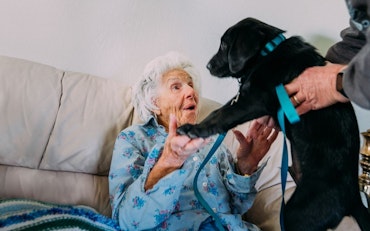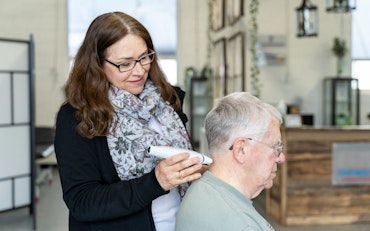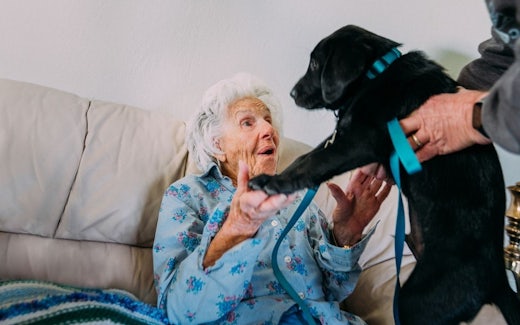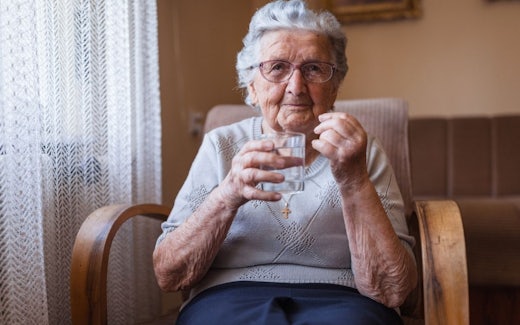Worried well or growing signs of dementia?

Senior man playing chess with his caregiver.
As we age, it’s natural to become more conscious of our cognitive health. Occasional forgetfulness or misplaced items can lead to concerns about dementia.
However, it’s essential to distinguish between normal age-related changes, the “worried well,” and genuine signs of cognitive decline.
Understanding the “Worried Well”
The term “worried well” refers to individuals who are in good health but frequently seek medical attention due to concerns about potential illnesses. These individuals often misinterpret normal bodily sensations or minor symptoms as serious medical conditions. While their concerns are genuine, they may not reflect actual health issues.
When to be concerned about your memory
It’s crucial to recognise when memory lapses are part of normal ageing and when they might indicate a more serious issue. According to the Alzheimer’s Association, early signs of dementia include:
- Memory loss affecting daily life: Forgetting recently learned information or important dates.
- Challenges in planning or solving problems: Difficulty following familiar recipes or keeping track of monthly bills.
- Difficulty completing familiar tasks: Trouble driving to a known location or remembering the rules of a favourite game.
- Confusion with time or place: Losing track of dates, seasons, and the passage of time.
- New problems with words in speaking or writing: Struggling to follow or join a conversation.
- Misplacing things and losing the ability to retrace steps: Putting items in unusual places and being unable to find them.
- Decreased or poor judgment: Making uncharacteristically poor decisions, especially regarding money.
- Withdrawal from work or social activities: Avoiding social engagements or hobbies once enjoyed.
- Changes in mood and personality: Experiencing confusion, suspicion, depression, or anxiety.
If you or a loved one notices one or more of these signs, it’s advisable to consult a healthcare professional for a comprehensive evaluation.
Key considerations and minimising cognitive decline
While some risk factors for dementia, such as age and genetics, are beyond our control, research suggests that certain lifestyle and environmental factors can influence cognitive health. According to recent findings, key considerations include:
- Physical activity: Engaging in at least 200 minutes of exercise weekly can help maintain cognitive function.
- Diet: Adopting a Mediterranean diet rich in fruits, vegetables, whole grains, and healthy fats supports brain health.
- Social engagement: Maintaining strong social connections can reduce the risk of cognitive decline.
- Mental stimulation: Regularly challenging the brain with activities like puzzles, reading, or learning new skills can enhance cognitive resilience.
Implementing these strategies may help minimize the risk of cognitive decline and promote overall brain health.
While it’s natural to be concerned about memory changes as we age, distinguishing between normal ageing, undue worry, and early signs of dementia is vital.
Staying informed, adopting a healthy lifestyle, and seeking professional advice when necessary can help maintain cognitive health and provide peace of mind.


















